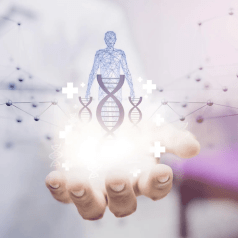According to studies Mercury is extremely toxic for pregnant women, but isn’t Toxic for the rest of us as well?
Unveiling the Risks: The Dangers of Mercury Amalgams for Pregnant Women and Beyond
Mercury. It’s a potent neurotoxin known for its harmful effects on the human body, yet it remains a common component of dental amalgam fillings used to treat cavities. While these silver fillings have been a staple of traditional dentistry for decades, mounting evidence suggests that their use poses significant risks, especially for vulnerable populations such as pregnant women. Let’s explore the dangers of mercury amalgams and why their removal is crucial for the health and well-being of both pregnant women and the general population.
Understanding Mercury Amalgams
Mercury amalgams, also known as silver fillings, are dental restorations composed of a mixture of metals, including mercury, silver, tin, and copper. While these fillings have been used for over a century due to their durability and affordability, concerns have arisen regarding the release of mercury vapor—a toxic gas that can be inhaled and absorbed into the body.
Risks to Pregnant Women
- Neurodevelopmental Effects: Mercury exposure during pregnancy has been linked to adverse neurodevelopmental outcomes in infants, including cognitive deficits, impaired motor skills, and behavioral disorders.
- Fetal Development: Mercury can cross the placenta and accumulate in the fetus, potentially disrupting critical stages of fetal development and increasing the risk of birth defects.
- Maternal Health: Pregnant women are more susceptible to the effects of mercury exposure due to hormonal changes and increased blood volume, which can exacerbate the toxic effects of mercury on the nervous system and other organs.
Risks to the General Population
- Neurological Effects: Chronic exposure to mercury vapor from amalgam fillings has been associated with neurological symptoms such as headaches, fatigue, memory loss, and mood disorders.
- Systemic Health Concerns: Mercury toxicity can impact various organ systems, including the kidneys, liver, and immune system, leading to systemic health issues and chronic illnesses.
- Environmental Impact: Amalgam fillings contribute to environmental mercury pollution through the release of mercury into wastewater and landfills, posing risks to aquatic ecosystems and human health.
The Case for Removal
Given the potential risks associated with mercury amalgams, many health experts advocate for their removal and replacement with safer alternatives such as composite resin fillings. The removal process must be performed with caution to minimize mercury exposure, using the SMART technique.
Advocating for Safer Dental Practices
As awareness of the dangers of mercury amalgams grows, it’s essential for individuals, especially pregnant women, to advocate for safer dental practices and explore alternative treatment options. By choosing mercury-free dentistry and prioritizing oral health in pregnancy, we can protect the health and well-being of both current and future generations.
Conclusion: A Call to Action
In conclusion, the risks associated with mercury amalgams highlight the urgent need for safer dental practices and greater awareness of their potential harm, particularly for pregnant women and vulnerable populations. By advocating for mercury-free dentistry and supporting policies that prioritize the use of biocompatible materials, we can create a healthier and safer environment for all. Let’s take action to protect our health, our planet, and our future by saying no to mercury amalgams and embracing safer alternatives in dental care.
-
Product on sale
 Kids Mineral ToothpasteOriginal price was: $12.00.$10.80Current price is: $10.80.
Kids Mineral ToothpasteOriginal price was: $12.00.$10.80Current price is: $10.80. -
Product on sale
 Mineral ToothpasteOriginal price was: $12.00.$10.80Current price is: $10.80.
Mineral ToothpasteOriginal price was: $12.00.$10.80Current price is: $10.80. -
 Bristle Oral Health Test$169.00
Bristle Oral Health Test$169.00
Disclaimer
This content is for educational purposes only and isn’t a substitute for professional care by a doctor or qualified medical professional. This information is provided with the understanding it doesn’t constitute medical or professional advice or services. For help, seek a qualified medical practitioner.
For a functional medicine practitioner visit ifm.org, for a biological dentist visit IAOMT.org or askthedentist.com. It’s important you have a licensed healthcare practitioner in your corner who can help you make progress when it comes to your health.

Do you want to further discuss your oral health?
COME VISIT ME! Our Biological Dentist practice is centrally located in North Miami-Dade County in the City of Aventura, Fl.
Contact Us by phone: (305) 933-3350 or use the New Patient form, clicking the button.
SETH GILSON D.M.D – BIOLOGICAL DENTIST






